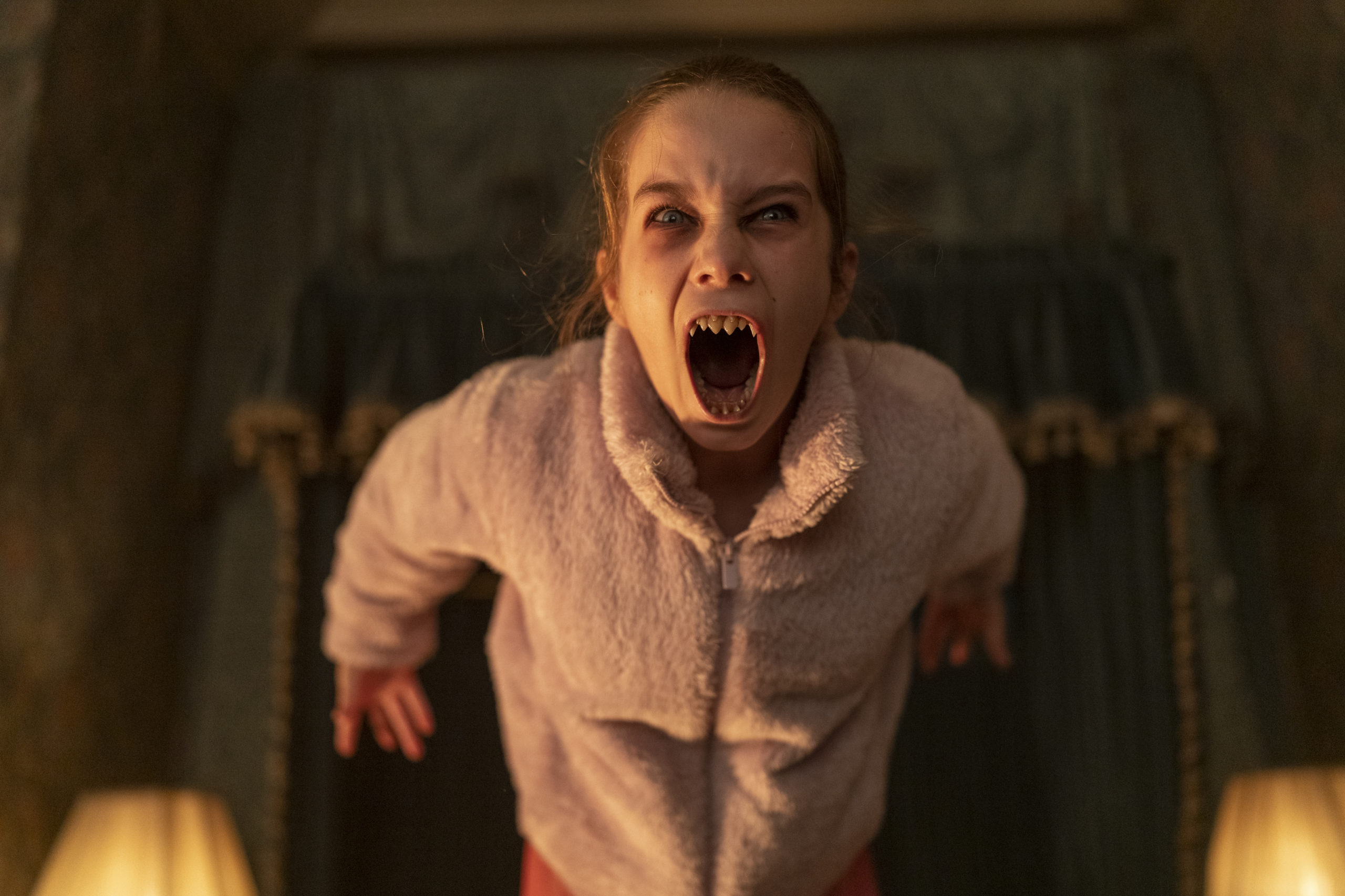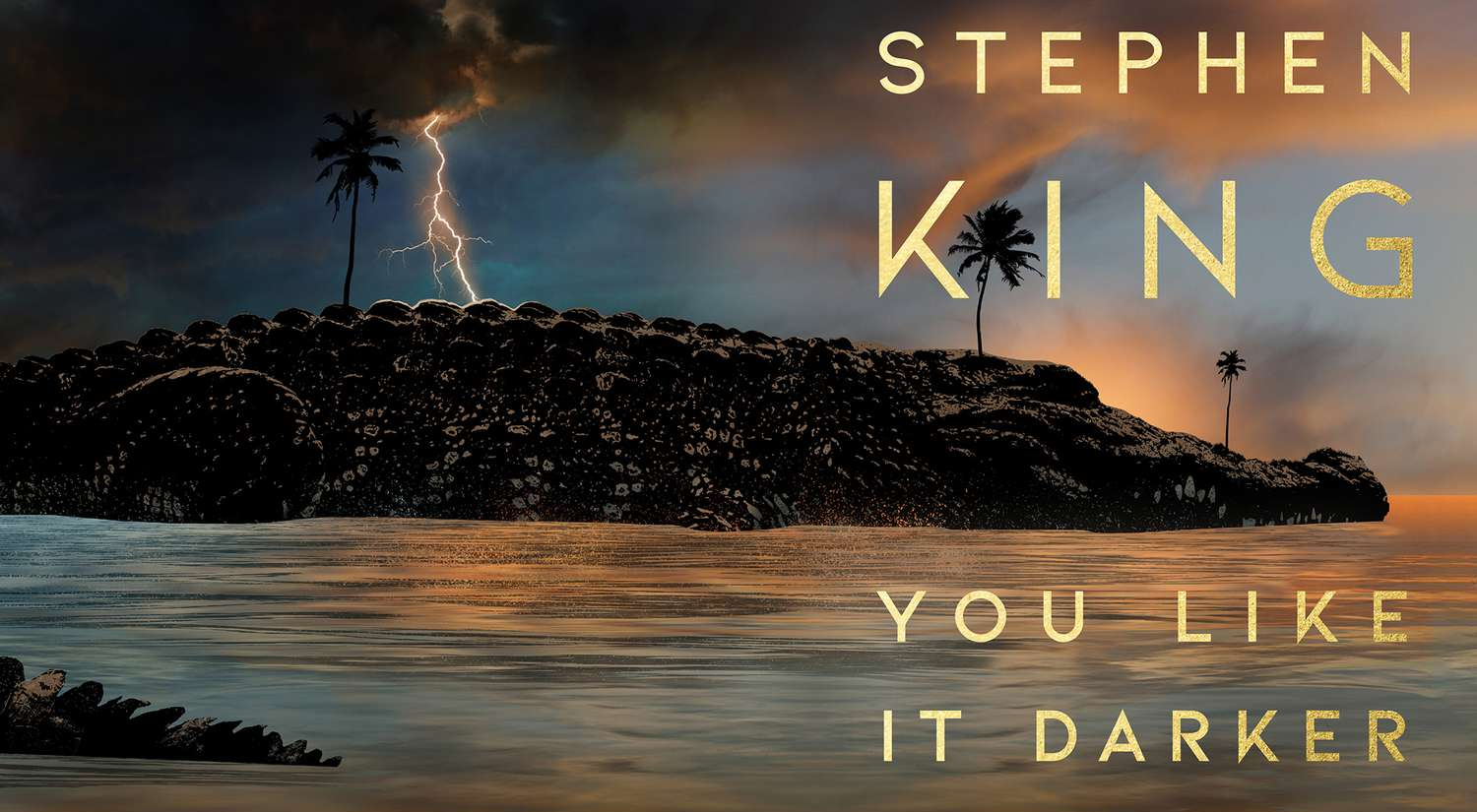Reviews
‘Abigail’ Review – Radio Silence Delivers Another Gory Good Time at the Movies

Abigail, the latest from directors Matt Bettinelli-Olpin and Tyler Gillett, feels like a spiritual sibling to their 2019 hit Ready or Not. Both are set almost entirely within a sprawling, warm-toned mansion and both deliver copious blood splatter to a delightfully satisfying degree. But Abigail is an inverse of Ready or Not; instead of one heroine targeted and preyed upon by a group of morally dubious enemies, it’s one vicious threat picking off morally dubious kidnappers one by one, slasher style.
While that may make for a more conventional watch with fewer surprises, Radio Silence’s ballerina vampire movie is a bloody blast all the same.
The heist-turned-vampire feature begins with the coordinated kidnapping of 12-year-old ballerina Abigail (Alisha Weir), the daughter of a powerful crime lord guaranteed to fetch a hefty ransom prize. Splitting the obscene loot are the six tasked with snatching Abigail from her home and safeguarding her for 24 hours: ex-cop Frank (Dan Stevens), medic and Abigail caretaker Joey (Melissa Barrera), endearing himbo muscleman Peter (Kevin Durand), spunky hacker Sammy (Kathryn Newton), wheelman Dean (the late Angus Cloud), and stoic ex-military gunman Rickles (William Catlett). The group of strangers arrive at their luxury hideout with minimal hiccups, where they’re given the rundown by employer Lambert (Giancarlo Esposito) and forced to give up their phones. Once left to their own devices, it quickly becomes clear that their kidnapping stint comes with job hazards they couldn’t have anticipated.

(from left) Dean (Angus Cloud), Sammy (Kathryn Newton), Abigail (Alisha Weir, back to camera), Peter (Kevin Durand), Frank (Dan Stevens, background), Joey (Melissa Barrera) and Rickles (Will Catlett) in Abigail, directed by Matt Bettinelli-Olpin & Tyler Gillett.
While the marketing for Abigail may have already revealed the precise threat that this code-named Rat Pack is dealing with, it actually takes a while for the unwitting kidnappers to discover the bloody truth. Bettinelli-Olpin and Gillett, working from a script by Guy Busick and Stephen Shields, relegate their murderous ballerina to the background for much of the first half to establish the group dynamics and stakes. That’s not a bad thing; Abigail boasts an ensemble cast that makes you want to spend time with them. Early scenes see the six feel each other out, test boundaries, and forge tenuous alliances in acerbically funny ways that make key exposition feel far less tedious than it would in lesser hands. More impressively, this game cast adds depth and pathos to their archetypical roles within the heist and horror.
Barrera’s Joey quickly emerges as the film’s antiheroine for her street smarts and boundless empathy, tasked with the role of the straight man. Joey keeps her cool, as much as possible, even when the horror kicks arrive in full. While Barrera makes easy work of instilling rooting interest and delivering some of the tougher bursts of exposition, she’s often upstaged by Stevens, having a clear blast playing the sleazy but savvy Frank. But Stevens isn’t the only scene-stealer here. Newton, especially through her scene partners, including Cloud, delivers some of the film’s funniest moments with her infectious charisma and witty line delivery. But it’s Durand’s loveable but dumb enforcer that threatens to steal it all, with Peter serving as the butt of many jokes to an unbelievably charming degree. And when Weir finally unleashes her inner monster, her ferocious yet layered portrayal easily establishes the young actor as a star on the rise.

(from left) Abigail (Alisha Weir) and Sammy (Kathryn Newton) in Abigail, directed by Matt Bettinelli-Olpin & Tyler Gillett.
It’s the cast and their memorable characters that carry Abigail far when the build-up adheres to familiar narrative beats. There’s a sense of awareness of the cinematic vampires that have paved the way, with Abigail acknowledging and borrowing from various aspects of the vampire mythos, but the film never attempts to reinvent the wheel. Instead, Abigail just wants you to have a good time seeing its unlucky criminals in over their heads in increasingly deranged and violent ways. Ultimately, a few unexpected narrative turns herald in one of the goriest finales to come along in quite some time: gorehounds, this one is definitely all for you.
The exquisitely detailed production design by Susie Cullen and a heaping helping of viscera and gore from the SFX team bolster a slick production (in more ways than one) that gives this enthusiastic cast plenty to sink their teeth into. Abigail is savagely inventive in terms of its vampiric gore, offering a thrill ride with sharp, pointy teeth. Though Abigail may be too methodical in its steady ramp-up toward full-blown insanity, the brilliant ensemble makes the journey worth it. With an insane commitment to arterial spray, Abigail winds up another crowd-pleaser from Bettinelli-Olpin and Gillett. It’s poised to deliver the most fun you’ll have at the movies this year.
Abigail releases in theaters on April 19, 2024.


Books
Stephen King’s ‘You Like It Darker’ Finds Beauty and Hope in Nihilistic Horror [Review]

Stephen King may be known for epic novels like It and The Stand, but many Constant Readers first met the Master of Horror through his short fiction. Beginning with the iconic 1978 collection Night Shift, the best-selling author has been dazzling us for decades with short stories overflowing with sickening gore, fantastical creatures, meticulous violence, and transcendent joy. King follows suit in You Like It Darker, a jaw-dropping collection of twelve terrifying tales, five of them previously unpublished. Inspired by Leonard Cohen’s “You Want It Darker,” the outstanding tome dives head-first into the brutal randomness of pain and destruction – a “lullaby for suffering” only King can deliver.
The collection kicks off with “Two Talented Bastids,” a poignant story about an elderly author and his less talented son. Laird Carmody is a small-town Mainer who prizes his quiet life among the locals – a thinly veiled reference to King himself. The sprawling tale eventually uncovers a chance encounter that may hold the key to creative power. King’s most meta narrative to date, the story features references to the author’s real life including frequent visitors to his famous front gates, recollections of press-tour engagements, and allusions to longer “door stopper” novels. We’re also treated to line edits and sample paragraphs that offer additional peeks into the accomplished creator’s personal process. It’s a winding road both eerie and aspirational that sees the world-famous author grapple with his own unparalleled success while confronting us with the horror of unfulfilled dreams.
Most notable in this impressive collection, “Rattlesnakes” revisits one of King’s most brutal books. A sequel to the 1981 novel Cujo, this gut-wrenching tale catches up with Vic Trenton as he mourns for his late wife Donna – the flawed, but courageous mother who once battled a rabid dog to save the life of her child. On Rattlesnake Key, Vic meets another grieving mother still recovering from the horrific death of her own twin sons. Each day she lays out matching children’s clothes then wheels their long-dead spirits around in a squeaky pram while insisting that while she knows they’re not really there … sometimes they are. Pairing perfectly with the grisly story of a rabid dog, “Rattlesnakes” features moments of stark terror and shocking gore. Both heartbreaking and horrific, this sun bleached novella delivers a bloody bite reminiscent of King’s early career along with a harrowing warning against holding on to the past.
In addition to Cujo, King references iconic pieces of his extensive catalog. Easter Eggs abound as we revisit Derry, Castle Rock, and Dark Score Lake, sprinkled among familiar monikers and other deep cut references. King’s faux tabloid Inside View makes an appearance along with another haunting locale. Duma Key features prominently in two stories, making a literary return trip feel within tantalizing reach. The cover’s sinister alligator references “Laurie,” a touching story that careens headfirst into terror. Most of the collection’s horror occurs in bright daylight, reminding us that while we may survive the dark, we’re never truly safe. It’s King’s version of a beach read – bleak horror unfolding in the relentless sunshine.
Falling fourth in the collection, King’s other novella is slightly less successful. “Danny Coughlin’s Bad Dream” chronicles an extended nightmare as the titular janitor dreams about, then discovers, a dead body. Playing with the horrors of the criminal justice system, King follows a wrongfully accused man tormented by an obsessive detective convinced of his guilt. Similar to his 2018 novel The Outsider, the lengthy story unfolds like a confounding episode of Law & Order, eschewing supernatural scares for “ripped from the headlines” horror. King hints at racial and gender-based discrimination, but stops short of fully examining the larger implications of this disturbing premise.
While none of the collection’s twelve tales fall flat, some feel more developed than others. “Finn” and “Red Screen” both present ominous ideas, but offer little more than snapshots of larger terror. “On Slide Inn Road” and “Willie the Weirdo” follow unpleasant older men bonding with a younger generation – King’s version of generational trauma. Harkening back to the unflinching horror of the author’s earlier career, both are admittedly fascinating in their sheer nastiness and cruelty, however, they lack the emotional punch of the collection’s longer tales. “The Fifth Step” will likely prove terrifying to those in Alcoholics Anonymous while “The Turbulence Expert” will play on existing fears of airline travel. However, both stories feel slight and may not evoke the same powerful response in readers without similar life experiences.
The collection’s penultimate tale may also be its most classically scary. “The Dreamers” follows a magician turned mad scientist who documents research of a world beyond our own. Pure Lovecraftian horror, grisly nightmares reach into the waking world as test subjects dream of an eerie red house with a green door. It’s shocking horror and nihilism at its best, reminiscent of King’s 2014 novel Revival. “The Dreamers” confronts us with unsettling answers to what it all means and a frightening reminder that ignorance may provide safety as well as bliss.
You Like It Darker concludes with one of the most beautiful and upsetting stories of King’s career. “The Answer Man” follows a likable everyman through his adult life marked by three encounters with a mysterious salesman offering answers to any question. But what is the true cost of ultimate knowledge? Does peering into the future give us power or pain? A perfect capper to this poignant collection, King fittingly references a question first presented in his darkest novel, Pet Sematary. What is the meaning of life and what can we expect at the end of our days? King attempts to provide what answers he can while grappling with larger truths forever out of reach.
A bloody tapestry of nihilism and hope, You Like It Darker makes peace with the randomness of suffering and the horror of human fragility.
You Like It Darker will be released on May 21, 2024.















You must be logged in to post a comment.